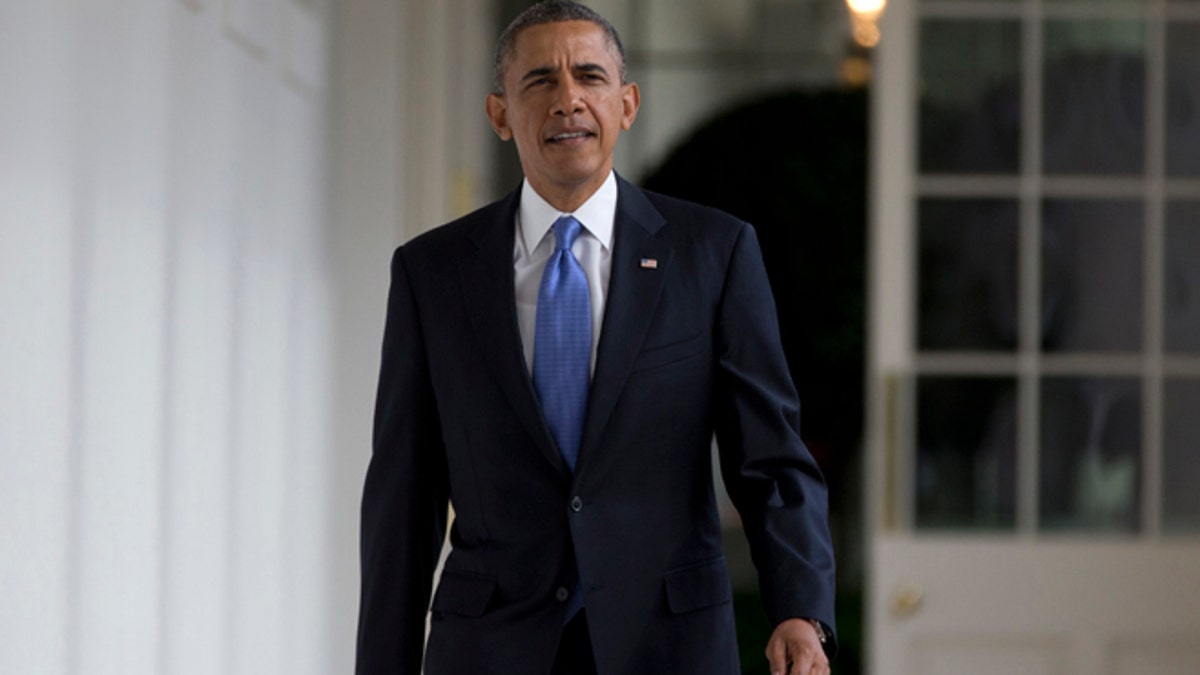
President Barack Obama walks along the Colonnade at the White House in Washington, Tuesday, Jan. 28, 2014, hours before giving his State of the Union Address before a joint session of Congress. (AP)
On January 23, 1996, President Clinton famously declared to a captivated American public that “the era of big Government is over.”
Eighteen years later, President Obama will shoot for a similar impact when delivering his fifth State of the Union Address, laying out his administration’s legislative priorities for the year to come on Tuesday evening.
While few expect such profound, Clintonian declarations, the speculation of Executive Branch priorities, ranging from the Keystone XL Pipeline to immigration reform, still keeps plenty of Washington pundits gainfully employed.
But given the growing importance that American innovation and technology play in our economy, global standing, and everyday lives, I believe the president must avoid boiler plate language on low hanging fruit and actually lay sound policy goals for this critical economic sector.
Specifically, the president must lead on pressing technological issues that Congress – despite well-documented gridlock and dysfunction – is acting on, including patent reform and the modernization of telecommunication law.
Last February, President Obama issued an Executive Action for comprehensive patent reform. Since then, members of congress reached across the aisle to propose 11 different legislation vehicles aimed at addressing the issue, including the Innovation Act, which passed the House in December.
But as President Obama said, such legislation “only [goes] about halfway" in addressing problems that affect jobs from the Internet sector to retail and restaurants.
The legislative debate must expand its scope to address patent pools – for-profit enterprises that collectively license groups of complimentary patents which together comprise a technology standard.
When operated fairly and in accordance with market principles, these pools offer efficiency to the patent system and promote innovation and competition. Unfortunately, some patent pools are “trolling” and abusing their market power and inviting government intervention into a market where it should not be necessary.
One example is MPEG LA -- a patent pooling entity and owner of the MPEG-2 standard commonly found in televisions, gaming consoles, and personal computers – who does not adjust their licensing fees and locks in licensors to contract terms far longer than the life of the patents despite holding predominately expired patents.
Like trolls, MPEG LA also uses patents offensively – currently pursuing Craig Electronics, Curtis International and ViewSonic for infringement of its patents and a pool controlled by MPEG LA called ATSC found in digital television. Because the ATSC technology standard is claimed to be reliant on the MPEG-2 standard, it allows MPEG LA to seek infringement rewards.
Like trolling, this is anti-competitive behavior that should be examined closely as the Senate begins to debate its “patent troll” bill in hopes that markets – and not government – will fix this growing problem.
On the flip side, government must clear obstacles that are in the way of our communications and information technology economy, a sector driven by the greatest invention for the free flow of information since the printing press – the Internet. This thriving industry now constitutes one-sixth of the U.S. economy despite operating under laws developed in 1934 based on monopoly-era railroad regulations and last revised in 1996.
The Communications Act was written for the monopoly telephone only era – not today’s multifaceted and dynamic digital age – and has no place in 2014. Internet companies should not be beholden to telephone era laws any more than airplanes should answer to the Federal Railroad administration. Applying obsolete laws to modern networks is silly and it is restricting investment, innovation, and slowing entrepreneurs’ ability to invent new products for the future.
President Obama should support the modernization of the 1996 telecommunications act. Representatives Fred Upton and Greg Walden have begun work in the House to update the Act to create a modern future-looking Internet policy framework for all players in the Internet economy.
A new Internet policy should begin with regulatory humility and tread very lightly: over the past two decades, the Internet has grown in ways no one could have ever predicted, and we can only imagine what is to come with tomorrow’s Internet.
A modern Act should set forth pro-consumer federal standards that break down antiquated silos and promote competition across platforms and among fiber-optic, cable, satellite, fixed and mobile wireless networks. A modern policy framework will unleash investment, innovation and increase broadband deployment and access, which will drive societal and economic opportunity in the 21st century.
On Tuesday night, President Obama should acknowledge that we are a country of innovators and that technology carries great opportunity for the future if the right, minimalist policies are in place. A dynamic Internet ecosystem and sound patent structure is crucial for our future.
Editor's note: The CEO of MPEG LA disputes Mr. Forbes' claims in an op-ed published here.








































